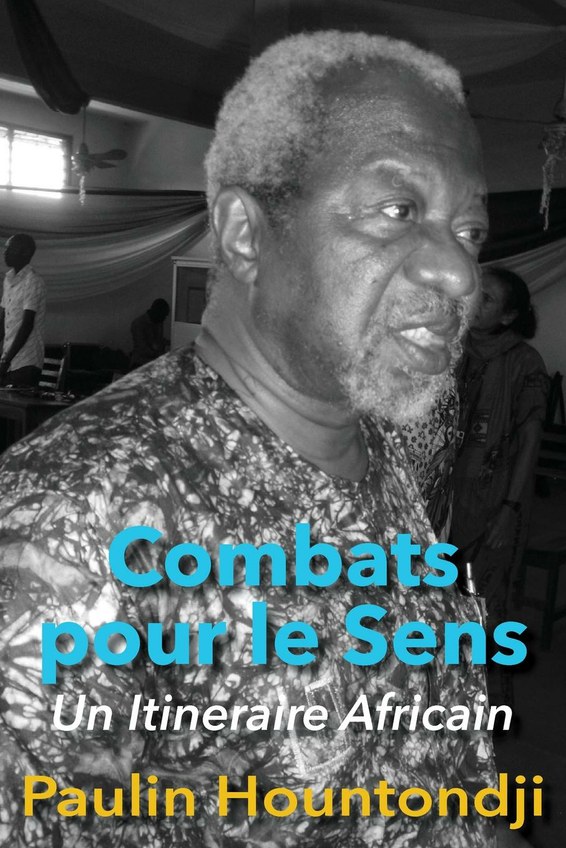Publisher: Langaa RPCIG, Cameroon
Pages: 284
Year: 2013
Category: Philosophy, Social Sciences
Dimensions: 229 x 152 mm
Dans ce livre, Paulin J. Hountondji, connu du public pour sa critique percutante de l’ethnophilosophie, retrace la genèse et l’évolution de sa réflexion. Il montre comment sa préférence pour les philosophies de la conscience, dont la phénoménologie de Husserl a été pour lui un exemple privilégié, son exigence d’une responsabilité intégrale s’exerçant aussi bien dans le discours que dans les actes, enfin son engagement dans le combat pour les droits de l’homme et la démocratie, ont pu motiver à des degrés divers ses réticences face à une “philosophie en troisième personne”, où le sujet se réfugie paresseusement derrière la pensée du groupe. Soulignant les enjeux à la fois théoriques et politiques de cette critique, il évoque la vaste polémique qu’elle a suscitée et prend position, pour finir, sur quelques-unes des grandes questions qui interpellent aujourd’hui l’humanité. Au-delà du témoignage autobiographique, l’ouvrage est un vibrant plaidoyer pour une Afrique autocentrée, maîtresse de son destin, contrôlant elle-même et produisant, à l’occasion, les connaissances théoriques et pratiques dont elle a besoin, dans un monde où les périphéries actuelles deviendraient à elles-mêmes leur propre centre et participeraient, de façon active et responsable, à la construction de l’avenir commun. Bachir S. Diagne, professeur de philosophie à l’Université de Columbia aux Etats-Unis, évoque dans sa préface l’impact considérable des travaux de Hountondji sur de larges secteurs de l’intelligentsia africaine et sur les disciplines africanistes en général.
The Struggle for Meaning is a landmark publication by one of African philosophy’s leading figures, Paulin J. Hountondji, best known for his critique of ethno-philosophy in the late 1960s and early 1970s. In this volume, he responds with autobiographical and philosophical reflection to the dialogue and controversy he has provoked. He discusses the ideas, rooted in the work of such thinkers as Husserl and Hountondji’s former teachers Derrida, Althusser, and Ricoeur, that helped shape his critique. Applying his philosophical ideas to the critical issues of democracy, culture, and development in Africa today, he addresses three crucial topics: the nexus between scientific extraversion and economic dependence; the nature of endogenous traditions of thought and their relationship with modern science; and the implications’ for political pluralism and democracyóof the emergence of ‘philosophies of subject’ in Africa. While the book’s immediate concern is with Africa, the densely theoretical nature of its analyses, and its bearing on current postmodern theories of the ‘other,’ will make this timely and elegant translation of great interest to many disciplines, especially ethnic, gender, and multicultural studies.
£44.00
About the author
Paulin J. Hountondji is a Professor of Philosophy at the National University of Benin Republic, joint-laureate of Mohamed El Fasi 2004 prize. He is the Director of the African Centre of Higher Education in Porto-Novo.
The American version of his book philosophie africaine: critique de l’ethnophilosophie (Paris, Maspero 1976) (African philosophy, Myth and Reality, Bloomington : Indiana University Press, 1983) was awarded the Herskovits Prize in 1984. The book is part of the 100 best African books of the 20th century selected in Accra in the year 2000.
Hountondji has recently published The Struggle for Meaning: Reflections on Philosophy, Culture and Democracy in Africa (Ohio University Press, 2002) and edited several publications, including Endogenous Knowledge: Research Trails, (Dakar: CODESRIA, 1997). Paulin J. Hountondji has served as the Vice-President of the International Board of Philosophy and Human Sciences (CIPH) and also of CODESRIA.
